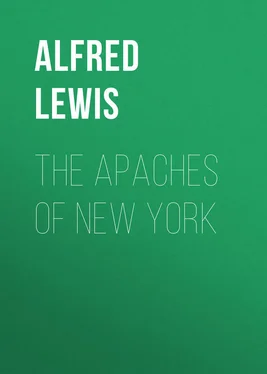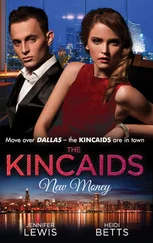Alfred Lewis - The Apaches of New York
Здесь есть возможность читать онлайн «Alfred Lewis - The Apaches of New York» — ознакомительный отрывок электронной книги совершенно бесплатно, а после прочтения отрывка купить полную версию. В некоторых случаях можно слушать аудио, скачать через торрент в формате fb2 и присутствует краткое содержание. Жанр: foreign_prose, на английском языке. Описание произведения, (предисловие) а так же отзывы посетителей доступны на портале библиотеки ЛибКат.
- Название:The Apaches of New York
- Автор:
- Жанр:
- Год:неизвестен
- ISBN:нет данных
- Рейтинг книги:3 / 5. Голосов: 1
-
Избранное:Добавить в избранное
- Отзывы:
-
Ваша оценка:
- 60
- 1
- 2
- 3
- 4
- 5
The Apaches of New York: краткое содержание, описание и аннотация
Предлагаем к чтению аннотацию, описание, краткое содержание или предисловие (зависит от того, что написал сам автор книги «The Apaches of New York»). Если вы не нашли необходимую информацию о книге — напишите в комментариях, мы постараемся отыскать её.
The Apaches of New York — читать онлайн ознакомительный отрывок
Ниже представлен текст книги, разбитый по страницам. Система сохранения места последней прочитанной страницы, позволяет с удобством читать онлайн бесплатно книгу «The Apaches of New York», без необходимости каждый раз заново искать на чём Вы остановились. Поставьте закладку, и сможете в любой момент перейти на страницу, на которой закончили чтение.
Интервал:
Закладка:
The Bottler lacked utterly the war-heart, and was in no wise a fighter. He had the brawn, but not the soul, and this heart-sallowness would have threatened his standing save for those easy generosities. Gangland is not dull, and will overlook even a want of courage in one who, for bed and beef stews, freely places his purse at its disposal.
There are two great gangs on the East Side. These are the Five Points and the Monk Eastmans. There are smaller gangs, but each owes allegiance to either the one or the other of the two great gangs, and fights round its standard in event of general gang war.
There is danger in belonging to either of these gangs. But there is greater danger in not. I speak of folk of the Bottler’s ways and walks. The Five Points and Eastmans are at feud with one another, and the fires of their warfare are never permitted to die out. Membership in one means that it will buckler you against the other while you live, and avenge you should you fall. Membership in neither means that you will be raided and rough-housed and robbed by both.
The Bottler’s stuss house was – like every other of its kind – a Castle Dangerous. To the end that the peril of his days and nights be reduced to minimum, he united himself with the Five Points. True, he could not be counted upon as a shtocker or strong-arm; but he had money and would part with it, and gang war like all war demands treasure. Bonds must be given; fines paid; the Bottler would have his uses. Wherefore the Five Points opened their arms and their hearts to receive him.
The Eastmans had suffered a disorganizing setback when the chief, who gave the sept its name, went up the river for ten years. On the heels of that sorrowful retirement, it became a case of York and Lancaster; two claimants for the throne stood forth. These were Ritchie Fitzpatrick and Kid Twist, both valorous, both with reputations of having killed, both with clouds of followers at their backs.
Twist, in whom abode the rudiments of a savage diplomacy, proposed a conference. Fitzpatrick at that conference was shot to death, and Kid Dahl, a near friend of Twist, stood for the collar. Dahl was thus complacent because Fitzpatrick had not died by his hand.
The police, the gangs and the politicians are not without a sinister wisdom. When life has been taken, and to punish the slayer would be an inconvenience, some one who didn’t do the killing submits to arrest. This covers the retreat of the guilty. Also, the public is appeased. Later, when the public’s memory sleeps, the arrested one – for lack of evidence – is set at liberty.
When Fitzpatrick was killed, to clear the path to gang leadership before the aspiring feet of Twist, the police took Dahl, who all but volunteered for the sacrifice. Dahl went smilingly to jail, while the real murderer of Fitzpatrick attended that dead personage’s wake, and later appeared at the funeral. This last, however, by the nicer tastes of Gangland, was complained of as bordering upon vulgarity.
Fitzpatrick was buried with a lily in his hand, and Twist was hailed chief of the Eastmans. Dahl remained in the Tombs a reasonable number of weeks, and then resumed his position in society. It was but natural, and to the glory of stumbling human nature, that Dahl should dwell warmly in the grateful regard of Twist.
Twist, now chief of the Eastmans, cast about to establish Dahl. There was the Bottler, with his stuss Golconda in Suffolk Street. Were not his affiliations with the Five Points? Was he not therefore the enemy? The Bottler was an Egyptian, and Twist resolved to spoil him in the interest of Dahl.
Twist, with Dahl, waited upon the Bottler. Argument was short and to the point. Said Twist: “Bottler, the Kid” – indicating the expectant Dahl – “is in wit’ your stuss graft from now on. It’s to be an even break.”
The news almost checked the beating of the Bottler’s heart. Not that he was astonished. What the puissant Twist proposed was a commonest step in Gangland commerce – Gangland, where the Scotch proverb of “Take what you may; keep what you can!” retains a pristine force. For all that, the Bottler felt dismay. The more since he had hoped that his hooking up with the Five Points would have kept him against such rapine.
Following the Twist fulmination, the Bottler stood wrapped in thought. The dangerous chief of the Eastmans lit a cigar and waited. The poor Bottler’s cogitations ran off in this manner. Twist had killed six men. Also, he had spared no pains in carrying out those homicides, and could laugh at the law, which his prudence left bankrupt of evidence. Dahl, too, possessed a past as red as Twist’s. Both could be relied upon to kill. To refuse Dahl as a partner spelled death. To acquiesce called for half his profits. His friends of the Five Points, to be sure, could come at his call. That, however, would not save his game and might not save his life. Twist’s demand showed that he had resolved, so far as he, the Bottler, was concerned, to rule or ruin. The latter was easy. Any dozen of the Eastmans, picking some unguarded night, could fall upon his establishment, confiscate his bankroll, and pitch both him and his belongings into the street. The Five Points couldn’t be forever at his threatened elbow. They would avenge him, certainly; but vengeance, however sweet, comes always over-late, and possesses besides no value in dollars and cents. Thus reasoned the Bottler, while Twist frowningly paused. The finish came when, with a sickly smile, the Bottler bowed to the inevitable and accepted Dahl.
All Suffolk Street, to say nothing of the thoroughfares roundabout, knew what had taken place. The event and the method thereof did not provoke the shrugging of a shoulder, the arching of a brow. What should there be in the usual to invite amazement?
For six weeks the Bottler and Dahl settled up, fifty-and-fifty, with the close of each stuss day. Then came a fresh surprise. Dahl presented his friend, the Nailer, to the Bottler with this terse remark:
“Bottler, youse can beat it. The Nailer is goin’ to be me partner now. Which lets you out, see?”
The Bottler was at bay. He owned no stomach for battle, but the sentiment of desperation, which the announcement of Dahl provoked, drove him to make a stand. To lose one-half had been bad. To lose all – to be wholly wiped out in the annals of Suffolk Street stuss – was more than even his meekness might bear. No, the Bottler did not dream of going to the police. That would have been to squeal; and even his friends of the Five Points had only faces of flint for such tactics of disgrace.
The harassed Bottler barred his doors against Dahl. He would defend his castle, and get word to the Five Points. The Bottler’s doors having been barred, Dahl for his side at once instituted a siege, despatching the Nailer, meanwhile, to the nearest knot of Eastmans to bring reinforcements.
At this crisis O’Farrell of the Central Office strolled into the equation. He himself was hunting a loft-worker; of more than common industry, and had no thought of either the Bottler or Dahl. Happening, however, upon a situation, whereof the elemental features were Dahl outside with a gun and the Bottler inside with a gun, he so far recalled his oath of office as to interfere.
“Better an egg to-day than a hen to-morrow,” philosophized O’Farrell, and putting aside for the moment his search for the loft-worker, he devoted himself to the Bottler and Dahl.
With the sure instinct of his Mulberry Street caste, O’Farrell opened negotiations with Dahl. He knew the latter to be the dangerous angle, and began by placing the muzzle of his own pistol against that marauder’s back.
“Make a move,” said he, “and I’ll shoot you in two.”
The sophisticated Dahl, realizing fate, moved not, and with that the painstaking O’Farrell collected his armament.
Читать дальшеИнтервал:
Закладка:
Похожие книги на «The Apaches of New York»
Представляем Вашему вниманию похожие книги на «The Apaches of New York» списком для выбора. Мы отобрали схожую по названию и смыслу литературу в надежде предоставить читателям больше вариантов отыскать новые, интересные, ещё непрочитанные произведения.
Обсуждение, отзывы о книге «The Apaches of New York» и просто собственные мнения читателей. Оставьте ваши комментарии, напишите, что Вы думаете о произведении, его смысле или главных героях. Укажите что конкретно понравилось, а что нет, и почему Вы так считаете.












